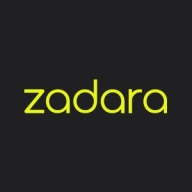

Zadara and Amazon Virtual Private Cloud (VPC) are notable contenders in the cloud service domain. Zadara's strong managed service and cloud integration provide a distinct edge in personalized support and predictable pricing, while Amazon VPC's robust security and AWS integration are clear advantages in standard cloud services.
Features: Zadara impresses with its seamless cloud integration, offering low-latency connections and flexible data management with object storage and hybrid drive options. The product also supports a wide range of cloud and on-premise configurations, enhancing versatility. Amazon VPC stands out with strong security features, offering customizable subnets and straightforward integration with other AWS services. Its flexible network management and security group configurations are highly valued.
Room for Improvement: Zadara could improve by speeding up updates and interface improvements, expanding service offerings, and enhancing VMware support. Pricing optimization and intuitive setup options are also desired. Users of Amazon VPC suggest enhancing UI navigation and transparency in pricing. Adding features like AI-based network security and improving regional support and documentation are also suggested improvements.
Ease of Deployment and Customer Service: Zadara's compatibility across hybrid and public clouds and its high-touch, proactive 24/7 support are praised for strengthening customer relationships. While reliable support is common to both, Zadara’s more personal engagement enhances its service appeal. Amazon VPC also supports diversified deployment modes, though its support approach leans towards broader-scale cloud operations.
Pricing and ROI: Though perceived as pricey, Zadara offers comprehensive features within its costs, maximizing ROI through a pay-as-you-grow model and minimizing upfront expenses. In contrast, Amazon VPC presents complicated and less transparent pricing, though optimized for usage patterns, users find its costs generally high. Zadara's predictable pricing model stands out against AWS's competitive rates, requiring careful cost assessment.
The cost is not cheaper compared to AWS, and we have not seen the expected return on investment.
The technical support from Amazon has been excellent.
When we use business support, the availability of the engineers is very good.
I rate the technical support from Zadara as nine out of ten.
We lack adequate response times and a 24/7 service level agreement.
The scalability and ability to expand within Amazon Virtual Private Cloud performs very well.
Zadara is a fully-fledged platform, and our customers are happy with its use.
Based on my experience, there are aspects of Amazon Virtual Private Cloud that could be improved to enhance the solution.
Adding AI capabilities could enhance the offering as well.
Maintenance can also be complicated, especially when deeper troubleshooting requires navigating the CLI and searching for logs.
The pricing is considered expensive.
The ability to define and work with subnets is particularly helpful in managing the networking environment.
For security and ACLs, Routing Tables, route tables, subnet, and subnetting, these are very useful functions.
The most valuable feature is its storage management capability.
Zadara's troubleshooting feature is very valuable for me.


Amazon Virtual Private Cloud (Amazon VPC) lets you provision a logically isolated section of the AWS Cloud where you can launch AWS resources in a virtual network that you define. You have complete control over your virtual networking environment, including selection of your own IP address range, creation of subnets, and configuration of route tables and network gateways. You can use both IPv4 and IPv6 in your VPC for secure and easy access to resources and applications.
Zadara is a powerful enterprise-level storage solution whose design enables it to handle every aspect of a user’s data storage needs. It can be deployed in any location, using any protocol, and storing any data type that an organization requires. With Zadara, organizations can do everything that they were able to do with more traditional systems in a cheaper and more efficient way.
Zadara Benefits
Some of the ways that organizations can benefit by choosing to deploy Zadara include:
Zadara Features
File analytics. Organizations can leverage a powerful analytics package that can provide them with critical insights. These tools can help users sort through their data and make more informed data management decisions.
Reviews from Real Users
Zadara is a highly effective solution that stands out when compared to many of its competitors. Two major advantages it offers are its extensive suite of cloud solution integrations and its object storage capability.
Steve H., the chief technology officer at Pratum, writes, “One of the most valuable features is its integration with other cloud solutions. We have a presence within Amazon EC2 and we leverage computer instances there. Being able to integrate with computing, both locally within Zadara, as well as with other cloud vendors such as Amazon, is very helpful, while also being able to maintain extremely low latency between those connections.”
Mauro R., the CEO of Momit SRL, says, “The object storage feature is wonderful. With traditional storage, you have a cost per gigabyte that is extremely high or related to the number of disks. With Zadara Storage Cloud, you have a cost per gigabyte that you can cut and tailor to your needs independent of the number or size of the disks.”
We monitor all Compute Service reviews to prevent fraudulent reviews and keep review quality high. We do not post reviews by company employees or direct competitors. We validate each review for authenticity via cross-reference with LinkedIn, and personal follow-up with the reviewer when necessary.